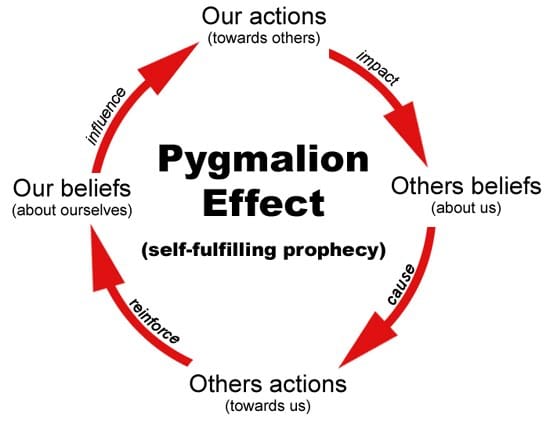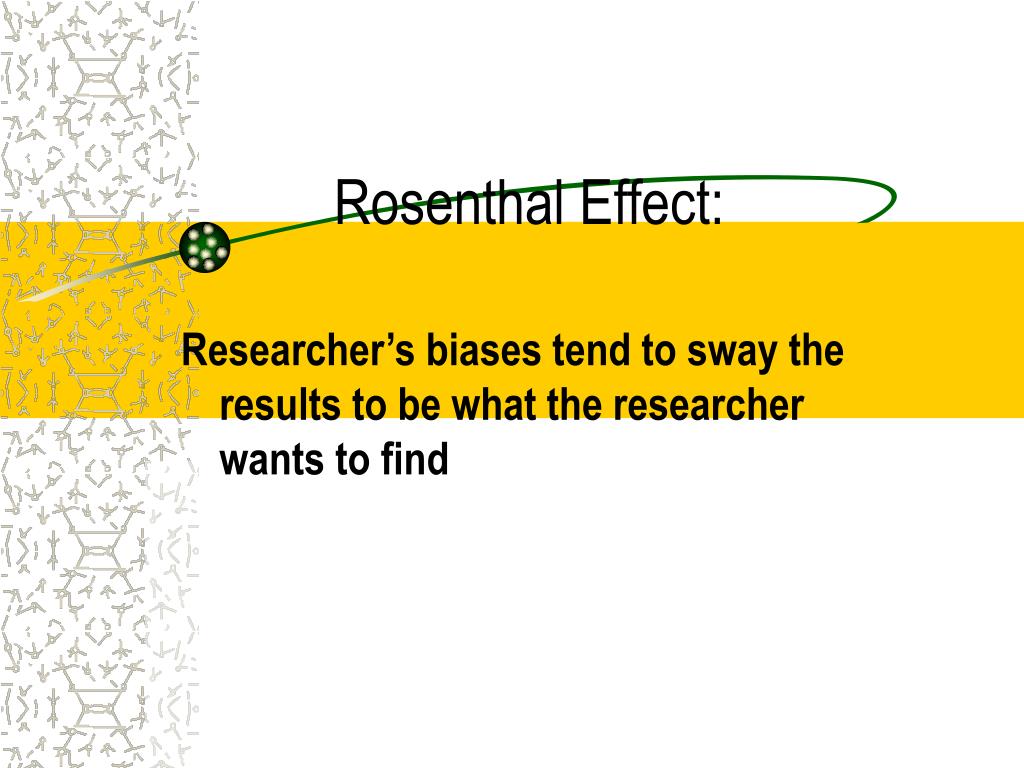Have you ever been told you’re going to excel at something, only to find yourself exceeding expectations? Or have you felt held back by the doubts of others, even when you knew you were capable? This curious phenomenon, where expectations can influence performance, is known as the Rosenthal effect. It’s a powerful reminder that the way we perceive and treat others can have a dramatic impact on their abilities.

Image: www.edupstairs.org
The Rosenthal effect, also known as the Pygmalion effect, is a psychological phenomenon in which higher expectations lead to an increase in performance. It was first observed by Robert Rosenthal and Lenore Jacobson in a study conducted in 1968, where teachers were told that certain students were “bloomers” – students who were about to make significant progress. When these students were later tested, they displayed significant improvement, even though there was no actual difference between them and the other students.
Understanding the Mechanism
The Rosenthal effect occurs because our expectations influence our behavior. When we expect someone to perform well, we treat them differently – with more encouragement, patience, and opportunities. This creates a positive feedback loop where the recipient of these positive expectations feels more capable and motivated, leading to improved performance.
The effect is not limited to educational settings. It can apply to various areas of life, including:
- Workplace: Managers who have high expectations of their employees may see their team members perform better than those who are less optimistic.
- Sports: Coaches who believe in their athletes’ potential can help them surpass their perceived limitations.
- Personal Relationships: Parents who have confidence in their children’s abilities can foster a positive self-image and motivate them to achieve more.
The Power of Positive Expectations
The Rosenthal effect illustrates the profound influence of expectations on our reality. When we expect success, we might unknowingly create conditions that foster it. Conversely, when we expect failure, we can inadvertently create a self-fulfilling prophecy.
Examples
- In a classic experiment, researchers told students they were about to take an IQ test, but some students were told they were “gifted.” These “gifted” students performed significantly better on the test, even though the test itself was a standard one.
- In a study on teacher expectations, researchers found that students who were labeled as “bloomers” by their teacher showed significantly greater academic gains throughout the year, even though they were no different from other students.

Image: www.slideserve.com
The Dark Side of the Rosenthal Effect
While the Rosenthal effect can be a positive force for growth, it also has a dark side. Negative expectations can have equally devastating consequences. When we disbelieve in someone’s abilities, we may treat them differently, perhaps with less patience or fewer opportunities. This can create a cycle of self-doubt and underperformance.
Examples
- A student who is constantly told they are not good at math might start to believe it themselves, even if they are capable. This can lead to a lack of motivation and effort, ultimately confirming the negative expectations.
- In the workplace, a manager who consistently expresses doubts about an employee’s abilities can create an atmosphere of negativity, making it difficult for that employee to thrive.
Real-World Implications
The Rosenthal effect has important implications for various fields:
- Education: Teachers can use the Rosenthal effect to create a positive learning environment where students feel supported and encouraged to reach their full potential.
- Business: Leaders can leverage the Rosenthal effect by setting high expectations and providing their employees with the tools and resources they need to succeed.
- Mental Health: Therapists can use the Rosenthal effect to encourage their clients to believe in their own abilities and overcome challenges.
Navigating the Rosenthal Effect
While we can’t always control the expectations others have of us, we can choose to harness the power of the Rosenthal effect in our daily lives.
- Be mindful of our own expectations: We need to recognize our own biases and be conscious of how they might influence our interactions with others.
- Communicate positive expectations: By expressing our belief in others’ abilities, we can create a positive feedback loop that leads to greater success.
- Empower individuals: Provide others with the support, resources, and opportunities they need to succeed. This includes fostering a growth mindset and encouraging continuous learning.
Rosenthal Effect
Conclusion
The Rosenthal effect reminds us of the extraordinary power of expectations. By recognizing and understanding this phenomenon, we can create a more positive and supportive environment where individuals can reach their full potential. Let’s all strive to be mindful of our expectations and foster a world where belief in each other’s abilities is a driving force for success.



/GettyImages-173599369-58ad68f83df78c345b829dfc.jpg?w=740&resize=740,414&ssl=1)


